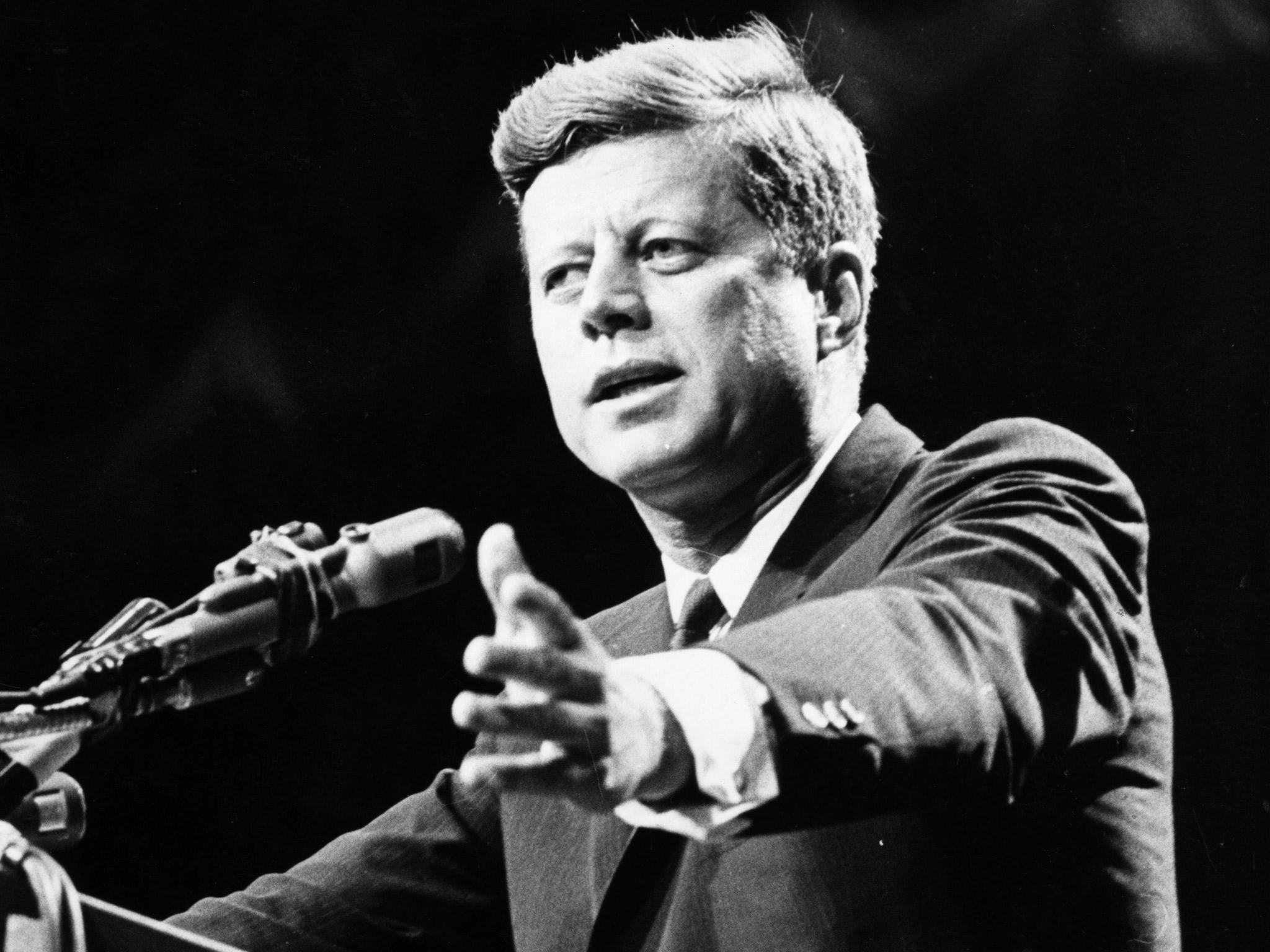Hillary Clinton cannot hide her health issues, even if past presidents once did
For JFK it was Addison's Disease, for LBJ it was a dicky heart

An individual's health is usually a private matter. Not however when that individual is either President of the United States, or running to be president. In which case, as Hillary Clinton has just discovered, expect to be pressed to reveal everything. And history justifies the clamour for transparency.
When it comes to the health of the most powerful person in the world, whose decisions often have an impact far beyond the shores of America, the record of the US, despite its reputation for openness, is distinctly mixed.
By and large, presidents have been pretty healthy – as they have to be given the stress of the job and, today, the physical gauntlet of a modern election campaign which for a challenger can last 18 months or more. But there have been glaring exceptions. And not until 1967 and the 25thamendment of the US constitution, was a clearcut mechanism established for what was to happen when a president died in office or was incapacitated by illness.
The last two occupants of the White House to die of natural causes were Warren Harding who suffered a fatal heart attack in 1923, and Franklin Roosevelt who died in April 1945 of a cerebral haemorrhage, 12 weeks after being sworn in for a fourth term. But before and since, there have been some near misses.
Unbeknown to the country, Woodrow Wilson suffered a major stroke in October 1919, that left him incapacitated for virtually the remaining 17 months of his presidency. Even before, as his doctors well knew, his health had been fragile. In 1955, Dwight Eisenhower had a heart attack that, while announced, may well have been more severe than was acknowledged at the time.
But it was his succcessor, John Kennedy, who really caused the goalposts to be moved on presidential health disclosure. JFK might have been killed by an assassin’s bullet, but his medical problems, had they been known at the time, would well have prevented him being elected in the first place.
Kennedy suffered from Addison’s disease, a serious glandular disorder, as well as colitis and chronic back problems. Astoundingly, these ailments and the constant medications they required, do not seem to have impaired his ability to govern. But nothing was made public. When aides of Lyndon Johnson, who challenged Kennedy for the 1960 Democratic nomination, let it be known that their man’s opponent had Addisons, the Kennedy camp flatly denied it – and that was that. Johnson himself took office in 1964 with a record of heart attacks, and throughout his presidency was terrified he would be felled by another one.
Against this the in-office health problems of recent presidents have been minor. In May 1991 George H.W. Bush was hit by atrial fibrillation while out jogging. More scary than the illness at the time was the fact that for a few hours at least it seemed that Dan Quayle might become acting president, under the 25th amendment.
In the event Bush recovered quickly without having to be put under, which would have triggered the amendment. But some have speculated that the condition persisted thereafter, contributing to the listlessness that often seemed to mark the remainder of his presidency, and that thus might have been a factor in his defeat by Bill Clinton in 1992.
As for the most spectacular demonstration of ill-health by the elder Bush – when he threw up in public at a state banquet in Japan – that episode was caused by a combination of stomach upset and tiredness. Equally inconsequential was the brief fainting by his son George W. Bush as the 43rd president choked on a preztel while watching a football game on television in the White House private quarters in January 2002.
In comparison, candidate Clinton’s diagnosis of pneumonia (of which the world was kept in the dark for 48 hours) sounds serious, especially given her previous documented health issues, that include a concussion and at least two episodes of bloodclots for which she still takes a bloodthinner. She may not yet be president, but the same rules apply.
Join our commenting forum
Join thought-provoking conversations, follow other Independent readers and see their replies
Comments
Bookmark popover
Removed from bookmarks